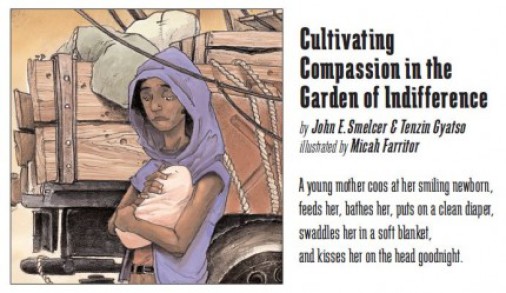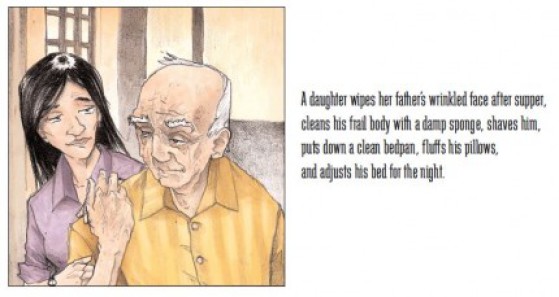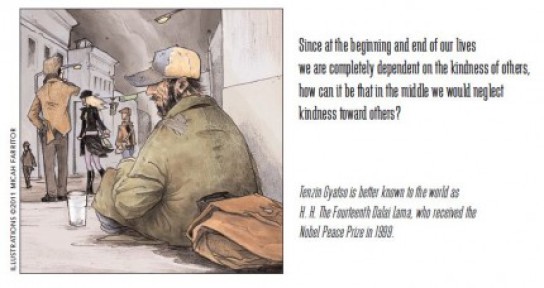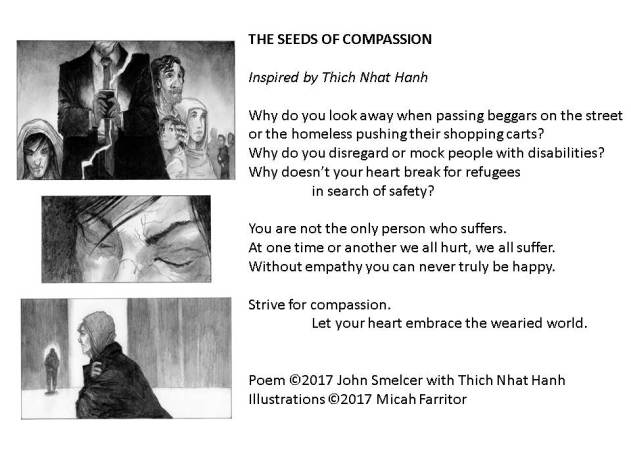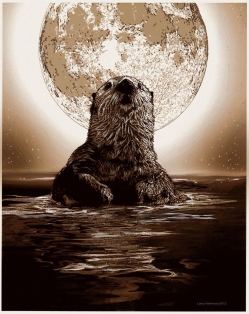The concrete (shaped) poem above is of a spawning salmon, one of the primary food sources of the Ahtna Athabaskan Indians of Alaska. The poem is comprised of words in the Ahtna language denoting the various parts of the salmon: eye, mouth, dorsel fin, anal fin, adipose fin, tail fin, skin.
AUTOBIOGRAPHY
I try to write
the story of my life
but the words swim
backwards on the page.
So, I tear it up
toss it into the river
where the pieces turn
into a school of salmon—
the first ever
to return to the sea.
A DEPRESSED POET'S NEW YEAR'S RESOLUTION
Someday, I will no longer
cast a shadow,
my beautiful words
will turn to rags,
and straw will no longer be gathered
as bedding for my grief.
Until then, I will be a weed
so tenacious even fire can't defeat it.
ELECTRIC DREAMS
M.I.T. Psychologist Steven Pinker
says some people have in utero memories
I have liquid memories
from when I was inside
the yellow-red cavern
of my mother. I remember
her singing to me softly,
when she walked in sunlight,
and all the times my father screamed
how much he didn't want me
to be born. I remember, too,
waiting inside my mother,
nervous and frightened,
clutching at anything
so that I wouldn’t slide out naked
into the hands of my father’s hate.
LITERARY CRITICISM
Catherine Has-Some-Books sat on a rock
talking to Johnny Looks-Too-White about Shakespeare.
“Hamlet must have been Indian,” she said,
“because everyone was out to get him.”
“Romeo must have been Indian,” he said,
“because white people never let their daughters marry Indians.”
“Lear must have been Indian,” they nodded,
“because he lost everything in the end.”
They held each other as the sun abandoned the reservation,
certain that Shakespeare must have been Indian.
RIVERSONG
Tazlina Village, Alaska
I never want to leave this land.
All of my ancestors are buried here
listening to riversong
from picket-fenced graves
their wind-borne spirits
linking past and present:
sii xu’ane tsiye, Tezdlende Joe
my great-grandfather, Tazlina Joe,
sii tsucde, Ełdayudesnaa
my grandmother, Morrie Secondchief.
When I finally fall to pieces
this is where my pieces will fall.
HOW RESERVATIONS GOT THEIR NAME
White government official comes out to see
land selected for Indian resettlement;
looks around, scratches his head, says,
“I don’t know. I got some reservations about this place.”
THE BIRTHDAY PARTY
After the song was sung
candles extinguished
cake and ice cream consumed
and all presents opened
the guests went outside to play
Cowboys and Indians
Indians hid behind trees and hedges
while cowboys rounded them up
and after shooting half
banished the rest to a condemned lot
on the poor side of town
A COLD FRONT SETTLES
IN THE VALLEY
Sixty below zero all week.
The truck won't start,
dogs won't go outside,
and even the sharp-pointed stars
are too cold to move.
All we do is sit
inside the candle-lit cabin
counting long arctic nights
in our dreams
and waiting along
with the bears and trees
for spring.
THIS IS JUST TO SAY
After a poem by William Carlos Williams
A note tacked to a tree in Indian country
we have
torn up the treaties
you signed
only yesterday
which you
paid for
in blood
We’re sorry
but we need
your land
so green, so green
SOLITARY MAN
Although I am a nobody
on a wintered field
writing lines to poems
no one will ever know,
I do not fail to cast a tiny shadow
on the snow.
SPRING ON THE YUKON
An old man standing on a riverbank
watching icebergs float downriver,
like polar bears swimming to the sea.
Smiling, he waves goodbye to them.
Farewell winter!
Farewell cold and darkness!
Welcome, welcome
summer.
DAAN’ K’E NIKAH TUU’
(“Spring on the Yukon” in the Ahtna Athabaskan)
C’etiyi yihwnighi’aa k’e sdaghaay
ten delzaghi ‘aen tayalaeł daa’,
k’e tsaani ggay bae natu’.
Dlok’, dela’ ghełnaa xonahang.
Xonahang xay!
Xonahang dlii ‘eł ghaetl’!
Dalasdii, dalasdii
saen.
ON FEET OF CLOUDS
A cloud arrives
quiet and gray
as the wolf
hunting field mice
in the frosted meadow
outside my cabin door.
YANLAEY KAE
("On Feet of Clouds" in the Ahtna Athabaskan)
Yanlaey łunatatez’aan
ghaetl’ ‘eł baa
k’e tikaani
c’ukatezyaa dluuni
yii cen zogh
‘an hwnax hwdatnetaani.
White Moon on Black Water
All of the pews on the groom’s side were full of his relatives —
parents, aunts and uncles, cousins, brothers and sisters, and all
of their collected families.
The bride’s side was empty.
But she was beautiful in her long, white gown. She had dark brown
hair, almost black eyes, and she was slender. Sleek even. No one knew
much about her. She had no family and no job. The groom’s father had
to give her away. But what she lacked in history, she made up for in love.
She loved the young man standing before her, softly holding her hands,
and he loved her with all his heart.
“I do,” the groom said, loud enough to be heard in the back row.
Within minutes the wedding was over, the handfuls of rice tossed, and
the pews emptied.
“How much do you love me?” the new wife asked as they drove away
to their honeymoon two counties over.
“Honey, you know I love you more than anything,” the man replied,
leaning over to kiss her.
“Would you give up your job to be with me?” she asked anxiously.
“Baby, that’s crazy,” the man said with a smile. “We gotta live.”
The young wife didn’t speak for a while.
Sensing her hurt, the husband tried to make amends. “Sure, honey.
I’d do anything to be with you. Hell, we can live on love.”
“Do you promise?” she asked, smiling, her dark eyes gorgeous in
the sunset. “Oh, do you promise to love me no matter what?”
She reached over, took his free hand and held it tight.
“Sure,” he replied. “No matter what.”
Several miles later she spoke again.
“Turn left there,” she said, pointing to a dirt road ahead.
“But, baby, we have reservations.”
“Please,” the woman pleaded, on the verge of crying. “Oh, please.
I want to show you my home.”
The newly wed husband was curious. He had never been invited to
meet her parents. All he knew was that she was an only child.
“All right,” he said, looking at his watch.
Two miles down the backcountry road, they came upon a small
lake. A loon was swimming on the far side, and the sun was just above
the treetops. It would be dark soon. The man recognized it as the place
where they had first met. He had been fishing when she stepped wet
and naked from the forest, explaining that she had been skinny-dipping
and something had carried off her clothes.
The woman stepped from the car. She stood before her husband, still
in his tuxedo, and slipped the long, white dress from her lithe brown
body. She walked to the edge of the lake and turned around, motioning
for the man to follow. Then, she dived into the cold, dark water. When she
emerged, she was an otter. She was an otter woman, the very last one.
She had left the lake to find a mate.
She floated close, effortless, watching, waiting.
The man stood on the shore until it was dark, until stars began to shine
and the moon floated on the black surface of the lake like a white lily pad,
until everything he knew became like the night and he stepped, naked, into
the uncertain water.
Published in the University of Alaska Fairbanks Alumni Magazine.
Illustration by Laurence Vienneau, a former professor of art at UAF.
sitemap verification more Info
Copyright 2009-2017 - John Smelcer Official Web Site

